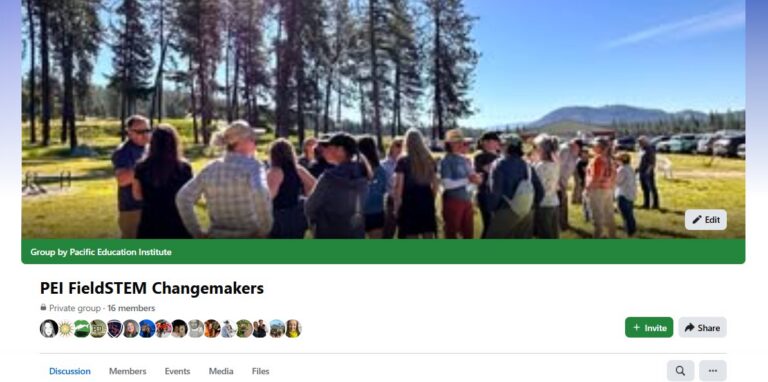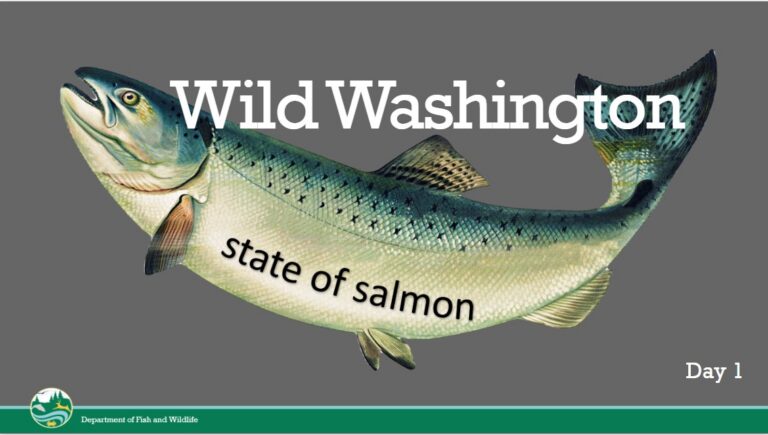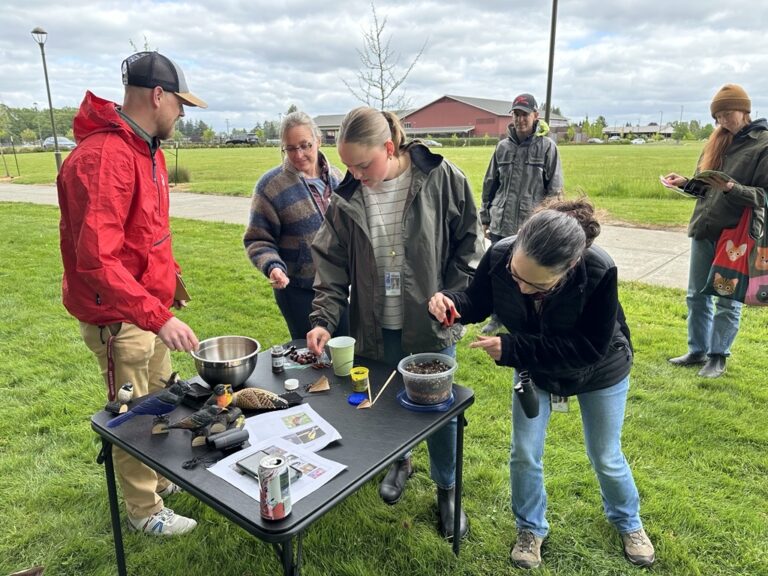In May, 45 educators from 22 different K-12 schools and 11 community partner organizations came together for a week at Camp Reed north of Spokane to learn how to develop overnight outdoor school programming for 5th and 6th grade students by participating in the 2023 Outdoor School Washington Spring Training.
The formal and nonformal educators were in all stages of outdoor school program development and were a dynamic mix of classroom teachers already leading overnight experiences, teachers looking for more environmental education lesson ideas for their alternative school program, administrators beginning a program, and camp directors looking for increased partnership opportunities.
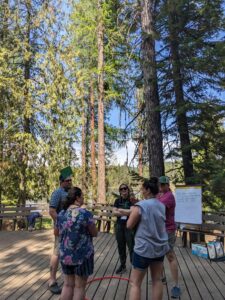
To kick off the week of learning, Lourdes Flores, PEI Multicultural Educator, led an activity to help participants think about how to connect to learners’ lived experience and culture to understand their entry point into the learning and to be able to build on each student’s assets. The activity was followed by an exploration of the Professional Educator Standards Board’s Cultural Competency, Diversity, Equity and Inclusion Standards and how they align with the characteristics of a high quality outdoor school.
Kat Hall, Restoration Program Director with The Lands Council; Stacey Selcho, Education Coordinator with Spokane Conservation District; Amy Dawley, a PEI Regional Coordinator; and Jami Ostby-Marsh, Director of West Valley Outdoor Learning Center led participants in a water quality comparative investigation that got participants in a creek, lake, and freshwater marsh measuring turbidity, pH, and temperature, and identifying macroinvertebrates, in order to determine which location had water quality suitable for supporting a local threatened fish species. Teachers exclaimed over their discoveries, loving the chance to get their hands wet and see some cool bugs. The connection with these community organizations emphasized the importance of partnerships and collaboration in outdoor education.
“I didn’t know there are so many community partners in my region I can connect with to deliver environmental education.”
— Training Participant
In another session, the group met outside to sample a Project Learning Tree (PLT) lesson about fire found in the K-8 Explore Your Environment Guides they received from the training. They used Mood Meters and participated in Sit Spots, which help to address Social and Emotional Learning needs and target the eco-anxiety that can come with learning about increased fire due to climate change.
Participants also learned about how to modify their PLT lessons to include trauma informed practices using the Oregon State University Trauma Informed Practices Toolkit.
The educators experienced several sessions that got them thinking about how to create meaningful interdisciplinary, place-based lessons, which helped to build their confidence for building their own sessions with their own students.
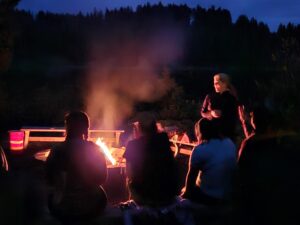
One session modeled engaging NGSS instruction by Kimberly Astle, Elementary Science Education Specialist from OSPI, and was a group favorite. Teachers explored a poem, guessing what organism it could be about, then watched the phenomenon of mushrooms growing and dying. They wondered together about why this was happening using a poster walk, then dissected mushrooms to notice and wonder about the function of their parts.
Of course, the group couldn’t get away without engaging in overnight camp culture and community building! Each night, participants volunteered songs, poems, stories, and group games around a nightly campfire. A favorite was the “Scat” song, which left participants laughing in delight.
Chase Buffington of Cispus Learning Center also led the participants in outdoor games sessions that helped participants relax and develop a sense of community.
Teachers had the option to receive clock hours from Outdoor School Washington for attending the week.

